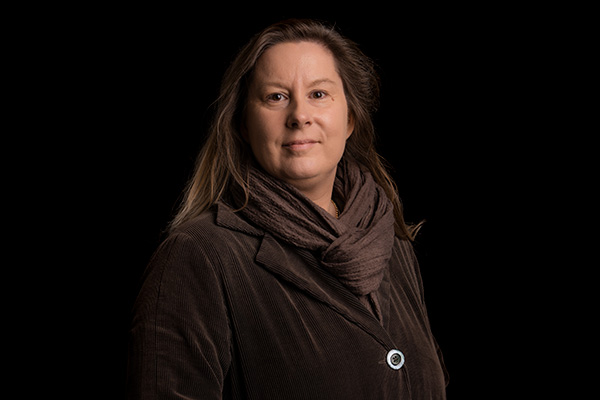Dea Siggaard Stenbæk
Research leader

Project title
Unlocking the doors of perception: Impact of music on acute and lasting effects of psilocybin in depressed patients
What is your project about?
There is a growing interest in applying the psychedelic drug psilocybin in the treatment of depression. Psilocybin is a drug that has its effects through stimulation of the serotonin system in the brain. Current guidelines for administration of psilocybin involves the use of music, it is, however, not clear in what ways the music actually affects the psychedelic experiences and lasting antidepressant responses. This project therefore aims to study whether music in combination with psilocybin affects the acute psychedelic experience and antidepressant response after one month. The project will include 100 depressed patients randomized to one of four groups: (1) 25mg psilocybin with music, (2) 25mg psilocybin without music, (3) 1mg psilocybin (active placebo) with music or (4) 1mg psilocybin (active placebo) without music. The project is conducted as a collaboration between Copenhagen University Hospital. Rigshospitalet, University of Copenhagen and Imperial College London.
How did you become interested in your particular field of research?
The interest in altered states of consciousness goes back to my teenage years, as I was preoccupied with how a creative process could facilitate connection with the inner world. Later, when I started my education in psychology, the interest was increasingly focused on therapeutic change and I was fascinated by the serotonin system in the brain on which I later wrote my PhD. Alongside my PhD studies, I underwent specialist training in receptive music therapy; so, when we started research in psychedelic drugs in Denmark, it was natural for me to combine my interests in consciousness, music therapy and serotonin in this research field.
What are the scientific challenges and perspectives in your project?
When you do research in consciousness there is always the challenge that your consciousness is ‘on’, meaning that every time you attend to the subject of your investigation you change it a little. This should not, however, stop us from experimenting with different ways to conduct consciousness studies, as psychology, by the way, has always done. The fact that psilocybin is a pharmacology that markedly affects consciousness makes it an exciting cross-disciplinary task to produce knowledge in this field without either disregarding phenomenological aspects or neurobiological and medical aspects. We assume that these aspects are related, but it can be difficult to think methodologically across disciplines. In this sense, it has some very exiting perspectives to think integratively about these novel psychedelic treatments.
What is your estimate of the impact, which your project may have to society in the long term?
If results from clinical studies of psychedelic drugs continues to be positive, I would expect that we will see these drugs in the treatment of psychiatric disorders such as depression, anxiety or alcohol abuse. This means that we need knowledge of how psychedelic drugs are best administered and which psychological frameworks provide the best safety and efficacy of the treatment with these drugs. For example, we know that psilocybin is a physiological safe drug, but also that the experiences, patients may have while under the influence of it, can be overwhelming. It is, therefore, important that the psychological intervention to support patients while undergoing psilocybin treatment is based on scientific knowledge, as we would expect from other forms of psychological treatment. This project is the first to investigate the interaction between effects of psilocybin and the psychological music setting, and I therefore expect that it will contribute with important knowledge about how these treatments should be shaped in the future.
Which impact do you expect the Sapere Aude programme will have on your career as a researcher?
It is, first and foremost, a great pleasure to have the research ideas of the project acknowledged through this grant and to experience that there is a will to support this novel research field. Secondly, the grant allows me to attach a group of researchers to the project and thus to expand the field in Denmark. This will give us the opportunity to put Denmark on the map of international research groups to conduct this line of research that may help us shape the treatment for depression in the future. Currently, I am working on establishing a psychedelic research clinic at University of Copenhagen, and the Sapere Aude program will be an important step in this process. My aim is that students, researchers, clinicians and not least patients will benefit from the research, I am now able to conduct with this grant.
Background and personal life
As a person, I am introverted and tend to get absorbed by ideas and knowledge. I have been married for 25 years to jazz-bass player Thomas Fonnesbæk, so we have always had a good mutual understanding of the need for creativity and immersion. Together we have three children who are in many ways the center of our world and a driving force to make it better. There are an infinite number of exiting questions, and I spend a lot of time listening to lectures and reading about many different subjects from astrophysics to religion, and it keeps being a source of awe that there are so many things we don’t know. Having a family and having close friends is a good boundary in an otherwise infinite universe of subjects that could elicit my curiosity. So, I prioritize to have time for both.
View all research leaders here
Research institution
RIGSHOSPITALET
Research field
Psychology
City of your current residence
Copenhagen
High school
Nørre G
